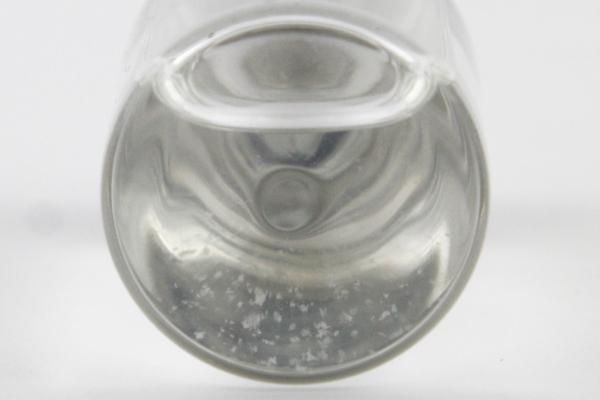
The purpose of a plastic film is generally to protect goods from water, but this sample would clearly be hopeless at that. Apart from a barely-visible residue at the bottom of this jar, the film has dissolved in water to form a harmless, non-toxic and biodegradable aqueous solution. This material was a water-soluble polymer film made from polyvinyl alcohol (PVA). The water solubility of the material can be controlled by tweaking the structure of the polymer. If the polymer chain is acetate-heavy, the material will be very soluble and will dissolve even in cold water; whereas, if alcohol groups replace those acetate groups, the material will only dissolve in hot water. The residue suggests that this polymer chain contained some alcohol groups.
The idea of a soluble plastic film may seem impractical, but this material is beginning to finding new uses. For example, hospitals use PVA bags for containing contaminated sheets and gowns so that laundry workers don’t have to come into contact with them, and can put the sealed, soiled items straight into the washing machine. PVA is also sometimes used as a ‘sacrificial’ material for making cores for the injection moulding process. Since PVA is non-toxic and easily dissolved, these films have started to appear in consumer goods packaging, for example as the casing in detergent-filled ‘liqui-tabs’.
Sample ID: 324
Add materials you find interesting to your own selections.
Use the  button to select a material and get started.
button to select a material and get started.

